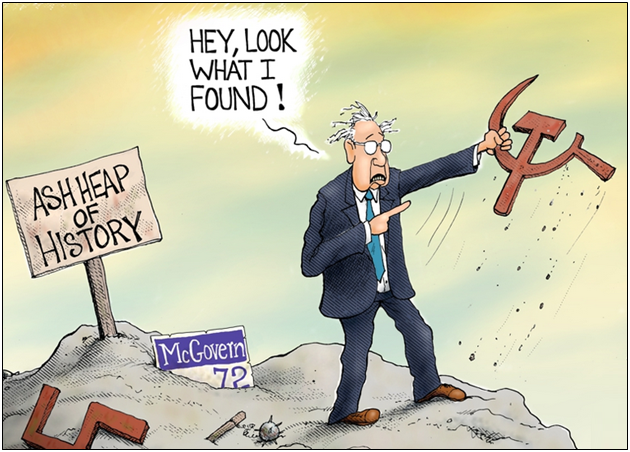Believe it or not, Sen. Bernie Sanders (D-Vt.) may be the frontrunner in the race for the Democratic presidential nomination after ending essentially in a tie with Pete Buttigieg in Iowa and leading polls in New Hampshire, making it more likely that the self-avowed socialist will be the nominee to take on President Donald Trump in November.
Former Vice President Joe Biden was a distant fourth place behind Sen. Elizabeth Warren (D-Mass.), and should he lose in New Hampshire next week, the odds will be stacked against him.
That’s because more likely than not, in the modern primary system for selecting party nominees, the candidate who wins either Iowa or New Hampshire is usually the candidate. In more than three-quarters of the years where no incumbent Democrat was running for president — 1976, 1984, 1988, 2000, 2004, 2008 and 2016 — the nominee had won either Iowa or New Hampshire.
There are two notable exceptions. Bill Clinton managed to secure the nomination in 1992 without winning either Iowa or New Hampshire, and so did George McGovern back in 1972.
Still, the advantage shifts to Sanders in this early going, making socialized single-payer medicine, universal basic income and the Green New Deal key issues on the front burner this election year on the Democratic side.
The appeal of Sanders in the general election is that he stands a chance of winning back the union households that in part helped put Trump over the top in the Electoral College in 2016 in the Rust Belt states of Michigan, Ohio and Pennsylvania.
But unlike in 2016, when it was thought that Sanders and Trump shared views on trade — both ran against North American Free Trade Agreement (NAFTA) — it was Sanders who ended voting to keep NAFTA when he voted against the now-adopted U.S.-Mexico-Canada Agreement (USMCA). If Sanders’ view had prevailed, the U.S. would still be in NAFTA, giving the Trump campaign an easy talking point.
Sanders’ other policies like the Green New Deal put working class Americans directly in the crosshairs who depend on the manufacturing and energy sectors for jobs in the modern, carbon-emitting industrial economy to make ends meet and feed their families.
If Sanders had his way, under the Green New Deal, industrial production would be dramatically curtailed not just here but globally, costing millions of blue-collar jobs and wrecking the economy.
In contrast, Venezuela will be highlighted as a model of failed socialism in the modern world.
Sanders’ age is deceptive, as his frontrunner status pits older generations against the new, radical Democratic base that seeks to disrupt and supplant the old order. Make no mistake, Sanders represents the socialist future of the Democratic Party. He’s ahead of the curve.
In the early 1900s, socialism and communism prevailed when economic conditions were extremely weak in Europe particularly after World War I.
In comparison, with the Trump economy doing so well, with a 50-year low in unemployment and more Americans working than ever and providing for themselves — a blue-collar Renaissance — Sanders’ socialism will appear out of place, even as it energizes younger Democratic voters during the primaries. But that is not a recipe for a majority, at least now.
In 2020, it becomes a choice election between work on one hand with the lowest peacetime unemployment in modern history, and welfare on the other.
Today, in the U.S., the economy arguably has never been better, making radical transformation a hard sell to working Americans looking to make a safe bet in 2020, and Sanders will be hard-pressed to win over those independents and Democrats who voted for Trump in 2016.
Meaning, in November, it could be Democrats who end up feeling the Bern as President Trump is easily reelected. Stay tuned.
Robert Romano is the Vice President of Public Policy at Americans for Limited Government.







